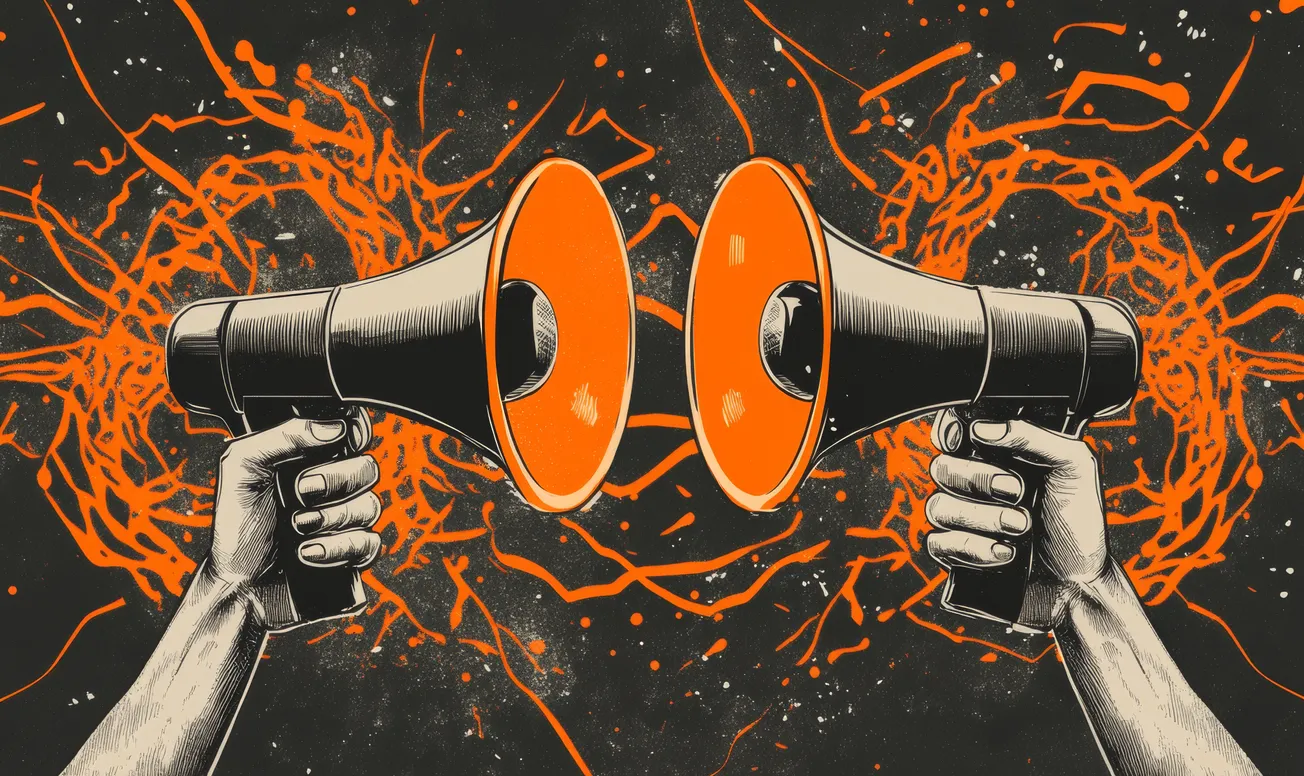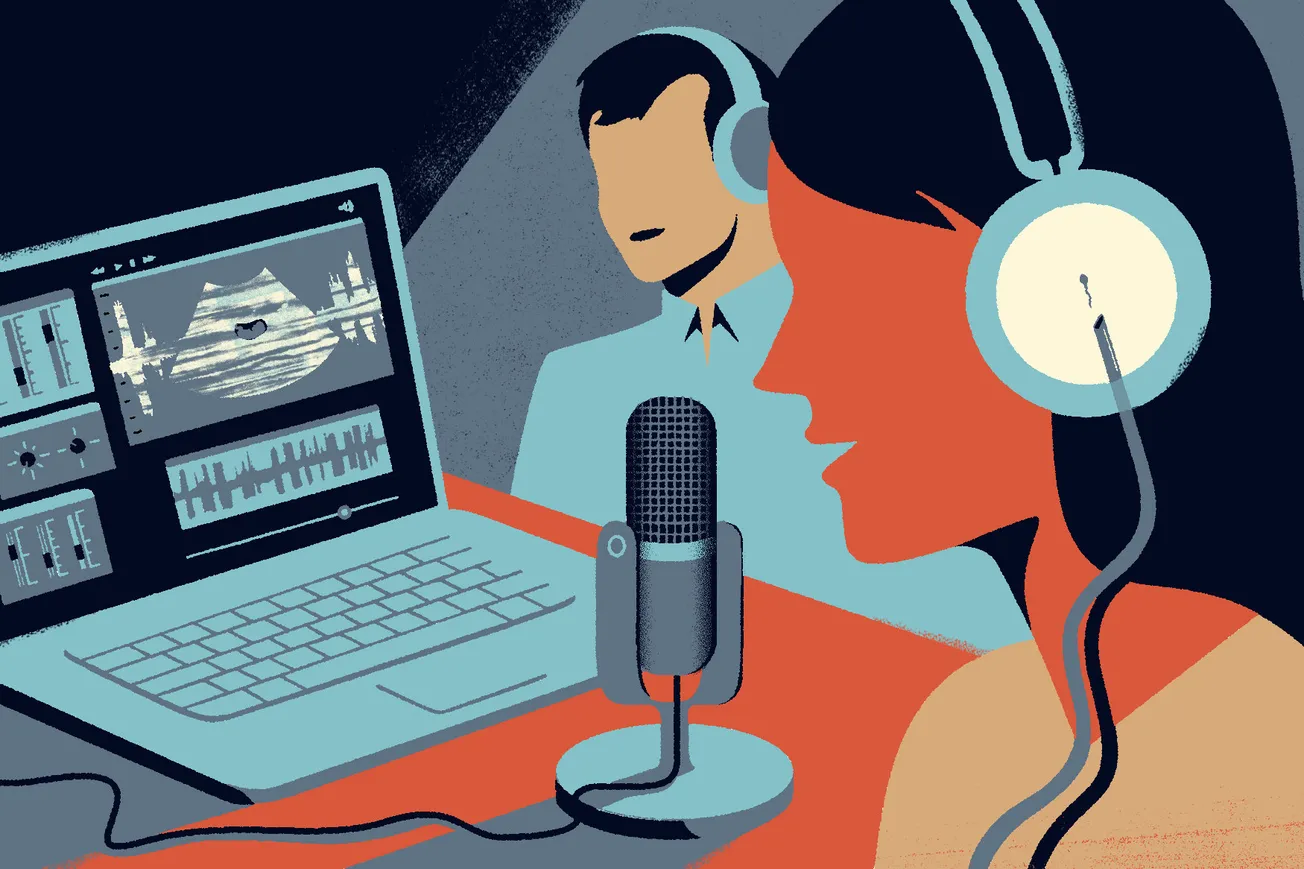As digital content expands into uncharted realms, AI voices are resurrecting iconic figures, enabling podcasts to capture the essence of legendary hosts and performers long after they’ve left us.
As new AI-driven podcasts push boundaries, creators are balancing nostalgia with ethics in a modern revival of voices.
It’s hard to imagine British television without the influence of Sir Michael Parkinson, one of the country’s most beloved presenters. Known for his charm, wit, and deft interview skills, Parkinson’s eponymous show became a household fixture, featuring everyone from Muhammad Ali to Madonna.
Since Parkinson’s death in 2023, his legacy has largely lived on through archives and fan memories. Now, though, Parkinson’s voice will return through a new podcast called Virtually Parkinson, a collaboration with Deep Fusion Films that uses artificial intelligence to emulate Parkinson’s interview style and voice in an innovative, unscripted eight-part series.
The AI-driven project, supported by Parkinson’s family, invites fresh conversations with cultural figures and offers listeners a chance to experience Parkinson’s interview style as if he were still present.
This model exemplifies how AI voice technology has entered podcasting, a medium with potential for expansive, intimate storytelling, particularly with voices that audiences deeply connect with. However, AI voice replicas pose unique legal and ethical challenges—some of which have already ignited controversy.
The creation of AI voices has become increasingly sophisticated, using technology that learns from vast archives of speech to synthesize realistic voices. For Virtually Parkinson, Deep Fusion Films utilized “Squawk,” a proprietary AI framework connecting various AI tools, such as Natural Language Processing and deep learning. By drawing from Parkinson’s extensive back catalog of interviews and broadcasts, the AI Parkinson can interact naturally with guests, not only mimicking his voice but also replicating his unique conversation style.
“AI allows us to bring Michael’s voice back, not as a novelty, but as an opportunity to introduce his iconic style to new generations and celebrate his legacy,” said Jamie Anderson, co-founder of Deep Fusion Films.
AI recreations require not just accurate voices but believable personality simulations, which technologies like “Squawk” achieve by analyzing the tone, timing, and rhetorical patterns of archived material. By integrating these elements, the AI Parkinson can respond with an authenticity that feels true-to-life, offering an experience for guests and listeners that honors the legacy of Parkinson’s interviewing style.
This approach reflects a broader trend where AI seeks to preserve and even expand upon archival media, offering audiences a more immersive connection with past icons. From a technical standpoint, AI recreations are now increasingly accessible, with new developments in open-source platforms and machine learning algorithms making it easier to create custom voices.
The AI Parkinson project stands out due to its ethical approach: full involvement of the Parkinson estate and a transparent AI disclaimer at the beginning of each episode. For fans, this transparency and family endorsement has generated a sense of trust, creating an experience that feels both nostalgic and respectful.
Night Train Digital, which oversees Virtually Parkinson, also collaborates with the family on a curated Michael Parkinson YouTube channel, blending AI-generated content with archival footage. The seamless blend of past and present content aims to create an enduring digital hub for fans.
Other well-known AI voice projects have included James Earl Jones, Anthony Bourdain and George Carlin.
James Earl Jones as Darth Vader: Jones’s voice, known globally as that of Star Wars’ Darth Vader, was digitally replicated by Lucasfilm using advanced AI. With Jones’s retirement, the AI version was incorporated into new Star Wars content. Fans responded with mixed emotions; while some appreciated the iconic voice’s continuity, others questioned the ethical implications of synthesizing voices after retirement.
Anthony Bourdain in Roadrunner: AI-driven recreation of Bourdain’s voice in the 2021 documentary Roadrunner ignited fierce ethical debates. Though some viewers appreciated the poignant effect of hearing Bourdain “speak,” critics argued that the documentary crossed ethical boundaries by using AI without explicit consent.
George Carlin’s Voice and Podcasting’s Legal Quandaries: The George Carlin estate faced backlash when Carlin’s voice was reportedly used in AI projects without clear family approval. This controversy highlighted a critical issue in AI voice usage: ownership. In Carlin’s case, his unique delivery and humor were replicated in various formats without public clarity on whether the family consented, sparking debates around legacy, control, and authenticity.
The key question facing AI-driven recreations is consent. With Parkinson’s series, explicit consent from his estate, which his son oversees, has been integral to its ethical grounding. In cases like George Carlin’s, where family authorization wasn’t confirmed, the line between tribute and exploitation becomes blurred.
While copyright generally protects works like books or recorded media, the laws around likeness and voice remain murky, especially in AI contexts. The field now calls for updated legal protections that specify how and when voices can be synthesized after an individual’s death, underscoring the need for “digital wills” where individuals can specify their wishes for AI recreation.
Another significant legal consideration is the “right to personality,” which protects an individual’s name, likeness, and sometimes voice. Jurisdictions vary on these rights, with some offering minimal protections posthumously. As AI usage grows, families of public figures are demanding greater control over digital recreations to prevent unauthorized use.
The Parkinson estate’s active involvement demonstrates a model of ethical compliance that contrasts with more contentious cases. For instance, Robin Williams included clauses in his estate that prevent the use of his image or voice in AI recreations for several decades, a choice more estates may consider.
Beyond legalities, AI-driven recreations raise profound ethical questions. Are these voices enhancing legacy, or exploiting it? Parkinson’s son, Mike, envisions the project as a tribute, hoping audiences enjoy the nostalgia and happy memories.
Yet the ethical debate persists: AI gives voices permanence, but should it? To many, voices—like memories—are meant to fade. AI disrupts this natural process, creating a complex interplay of reverence and commodification.
AI’s unique strength lies in its ability to bridge generational gaps, allowing fans to engage with classic voices in contemporary contexts. Virtually Parkinson introduces Parkinson’s interview style to listeners unfamiliar with his original work, effectively preserving his influence.
This “digital preservation” approach has marketing appeal, too. AI-driven projects have successfully reached younger audiences who might not have known these figures firsthand. Night Train Digital has strategically built this podcast as both a celebration of Parkinson’s legacy and a modern reimagining.
AI-driven podcasts create new monetization avenues for estates and brands, especially through platforms like YouTube where archival and new AI content can coexist. For instance, the official Michael Parkinson YouTube channel will feature both AI podcast clips and archival footage, creating a holistic platform that appeals to nostalgia-driven and new listeners alike .
Similar models have been used by other entertainment brands. For example, Warner Bros. repurposed classic interviews with iconic figures in new contexts, mixing archival and AI voices to attract viewership across demographics.
Public sentiment toward AI-driven voice projects remains mixed. Early testers of Virtually Parkinson reportedly responded positively, describing the experience as both nostalgic and eerily authentic. Jamie Anderson of Deep Fusion Films noted that hearing Parkinson’s AI voice evoked emotional reactions from fans who “felt as though he was really there.”
However, not all reactions are positive. Some fans question the ethics of recreating voices, viewing it as an intrusion into private memories. Others are intrigued by the technological novelty but remain wary of fully embracing AI voices in media.
Media coverage of AI podcasts has largely focused on ethical concerns. When AI recreations stray into emotionally sensitive territories—such as Carlin’s unauthorized use or Bourdain’s recreated voice—critics have argued that these projects prioritize novelty over respect. To balance these concerns, creators must navigate not only technological boundaries but ethical ones, prioritizing consent and transparency.
AI’s potential in podcasting goes beyond voice recreation. Personalized AI hosts, interactive episodes, and adaptive storytelling are all possibilities on the horizon. AI voices, in particular, could lead to customizable podcasts where listeners select host voices to enhance their engagement.









